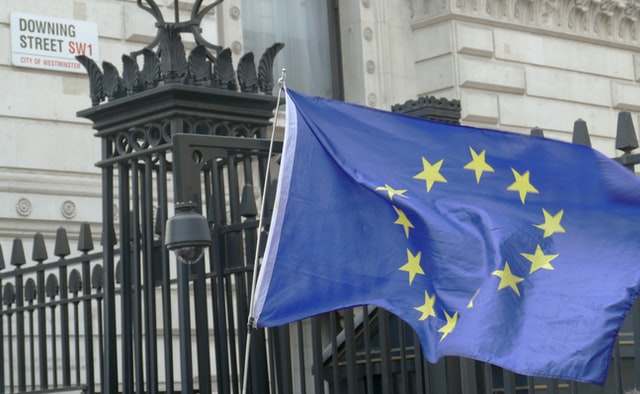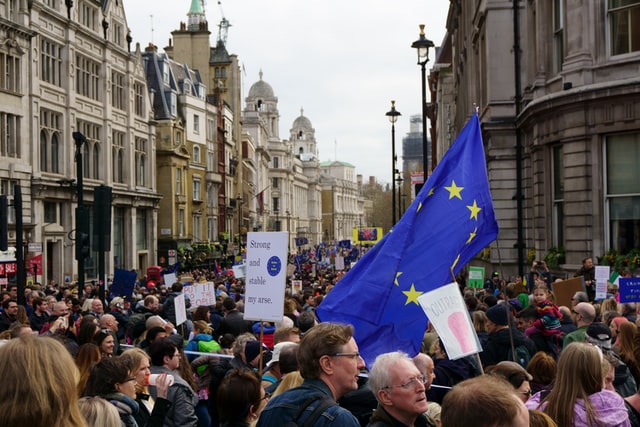If we are to look at the consensus from the financial markets, we expect any day now to see an announcement coming from Brussels or London to signal the final breakthrough in the Brexit negotiations. Indeed, perhaps that announcement has come by the time you are reading this. There is still the chance for a no-deal, of course. But most believe that both sides will cobble together something at the last minute, claim victory and move on to a world with the UK outside the European Union.

Emotions were high in June 2016 when the result of the referendum was announced, of course. And, after four long years of uncertainty, that has been replaced with a sense of weariness among politicians and the public alike, with the possible exception of Michel Barnier; who always looks like he has an enthusiastic spring in his step.
But there are certain ways where the narrative around Brexit has changed in those four years, and we wanted to examine them below. They are interesting not just from a political standpoint, but an economic one too.
“Hard” and “Soft” Brexit

It’s almost never mentioned any more, but whatever Boris Johnson agrees to in the coming weeks is going to be the ‘hardest’ of Brexits. If you cast your mind back a few years ago, this was almost unpalatable for anyone. In October 2016, the pro-Johnson, pro-Brexit Telegraph carried the headline “Hard Brexit will cost Britain £66 billion per year”. So, what’s changed? Were the figures off? Or has it been simply accepted/ignored?
Bloomberg compiled a report in February 2020 claiming that the UK had already lost £130 billion in growth due to Brexit, and some reports claim that Johnson’s skinny deal will still cause a huge dip in GDP. But the truth is that we simply do not know. Whereas there might be free trade on goods, “non-tariff” barriers to trade are looked at as unquantifiables. Like searching for treasure in the desert with Mansion, we just don’t know what we are going to find. It’s perfectly possible that Johnson’s “Innovation Hubs”, and whatever else Dominic Cumming has dreamed up, work out. But most analysts agree that Brexit will cost the UK economically, at least in the short term.
Punishing Britain

Looking back to the summer and autumn of 2016, there was a unified chorus from the European Union that (basically) stated Britain should be punished for leaving the EU. Led by Jean Claude Juncker and Guy Verhofstadt, there was a unified response from the EU that the UK would be worse off outside. This was meant to make the idea of any other nation leaving unpalatable.
But while the UK probably will be worse off outside the EU, the tone has certainly shifted, especially in Germany, where Angela Merkel is said to be pushing for the two sides to agree to a deal. Perhaps it is because Theresa May and Boris Johnson wanted different things, but the latter’s hardball approach has worked in the sense of getting the EU to do some of the running. This was evidenced in Johnson’s threat to walk away from talks in mid-October 2020; after which, the EU came back with an olive branch.
No Deal, Australia and WTO

It’s amazing how language can change a discourse. The words “no deal” are still uttered daily in most newspapers and political discussions, but there has been a deliberate attempt (from the Tory party and right-wing commentators) to soften the words by calling it an Australian-style deal or WTO Brexit. As so often in politics, it looks forced initially, but it ends up having the desired effect.
But there is a more important narrative shift here than just the naming of Britain’s manner of exit on 31st January; namely, the change in the narrative over a no-deal Brexit itself. Again, if you can think back to 2016 and how both remainers and brexiteers treated the subject, it was almost taboo to consider it. Only the hardest of hardline brexiteers seriously considered it, and those who claim to have been proponents of it are, put simply, lying. The fact that the idea of no deal is greeted with a shrug by many today shows how much the narrative has changed.
